译科技 | 盘点亚洲10大区块链初创企业

全文共计16933字,预计阅读时间9分钟
来源 | 数据观(转载请注明来源)
作者 | Joresa Blount
编译 | 黄玉叶
编辑 | 蒲蒲

2018年,亚洲在区块链就业增长、加密货币使用、创新和总体开放方面处于领先地位。尽管早期中国禁止ICO带来了一些麻烦,但中国仍然生成了近70%的加密采矿活动。
对于用户和企业来说,亚洲区块链生态系统总体而言是友好的。例如,在新加坡,比特币被当作商品而非货币进行征税,对使用比特币进行交易的买卖设定7%的统一税率;在日本,通讯软件巨头LINE 刚获得日本金融监管机构颁发的加密兑换许可证;在韩国,有消息称该国最大的娱乐公司SM娱乐即将推出自己的代币……
除了一些正在探索加密解决方案的知名公司,还有数百家创新型初创企业和创始人希望用区块链技术彻底颠覆各自的行业。以下这份名单包含了10家亚洲最值得关注的创新型区块链初创公司,包括交易所、初创金融科技公司等。
![]()
Level01
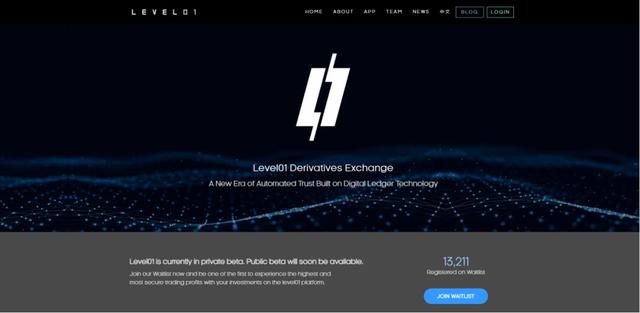
官网:https://level01.io/
Level01是全球首家与汤森路透合作的无经纪衍生品交易所。通过利用区块链技术,该平台消除了中间商,同时提供了分散式交易体验。用户可以从Level01平台和APP上交易外汇、加密货币、商品、股票、股指中的衍生品和期权。
数据观注释:汤森路透——Thomson Reuters,由加拿大汤姆森公司{The Thomson Corporation}与英国路透集团{Reuters Group PLC}合并组成的商务和专业智能信息提供商)
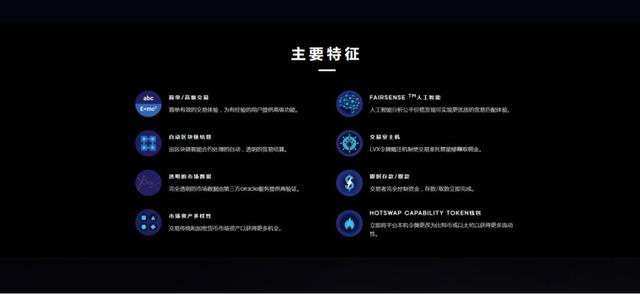
Level01通过使用分布式分类账技术(DLT)在区块链上实现透明和自动化的贸易结算,其独特的人工智能(AI)分析工具Fairsense基于汤森路透当前和可追溯的市场数据,为交易对手动态提供公允价值定价。该平台和应用程序目前正在接受50名经验丰富的交易员的严格测试。
![]()
Galaxy Pool

官网:http://www.galaxypool.co/
Galaxy Pool,又称GPO,是区块链上一种全新的资产发行方式,它利用智能合约进行初始数字资产发行。一般而言,GPO资产可以被认为是挖掘各种数字资产的采矿机器,这些数字资产可以通过回购和破坏池利润来获得GPO的增值收益。
凭借区块链上这种全新的资产发行方式,可以为投资者提供更人性化的投资机会和自由提现权。
![]()
Biki
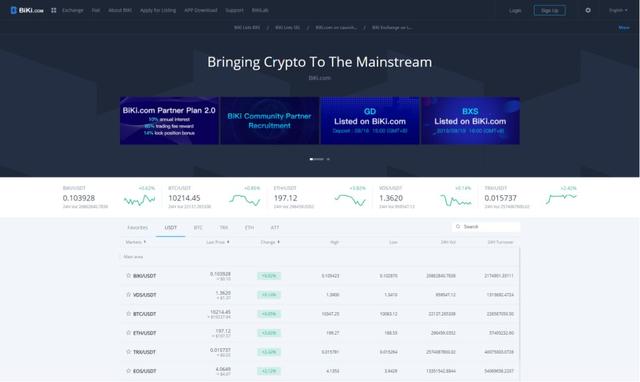
官网:https://www.biki.com/
BiKi.com总部位于新加坡,是一家全球加密货币交易所,在CoinMarketCap(知名代币排名网站)上排名前20 位。BiKi.com提供数字资产平台,用于交易超过150种加密货币和220种交易对。自2018年8月正式开业以来,BiKi.com被认为是世界上增长最快的加密货币交易所之一,一年内累计注册用户150万,每日活跃用户13万人次,社区合作伙伴超过2000个,社区成员达20万。
BiKi的竞争优势包括为不同项目通过在市场营销、网红和品牌知名度方面的帮助,已经帮助他们在中国市场和海外市场推动社区增长。Biki通过全球化的方法帮助中国企业走向全球,让国际公司进入中国市场。
![]()
Whitebit
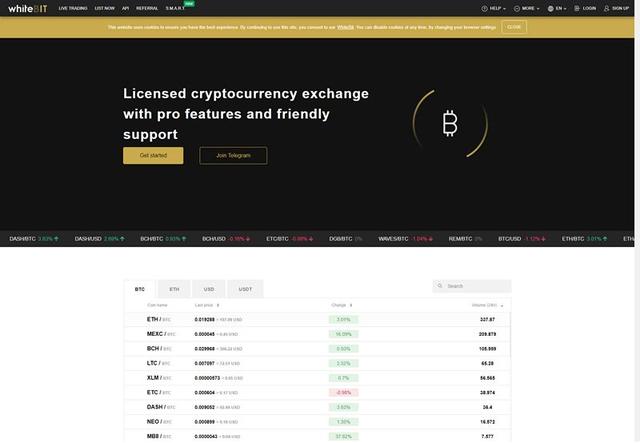
官网:https://whitebit.com/
Whitebit拥有一支由100多人组成的全球团队,是一个专业的数字资产交易平台,通过欧洲许可证为大多数主要亚洲市场提供服务。该交易所将95%的用户资金存放在冷钱包中,并为用户提供直观的用户界面,包括实时订单,图表和技术分析工具以及自动化功能。Whitebit的主要竞争优势是处理速度高达每秒一万次以及一百万个TCP连接。
Whitebit还宣布推出S.M.A.R.T. Box,该计划允许用户根据具有不同持续时间和利率的独特计划进行预算和分配资金。接下来,Whitebit还打算在2020年第四季度推出融资融券交易,以及移动iOS和Android应用程序,并最终获得美国牌照。
![]()
Opu Labs
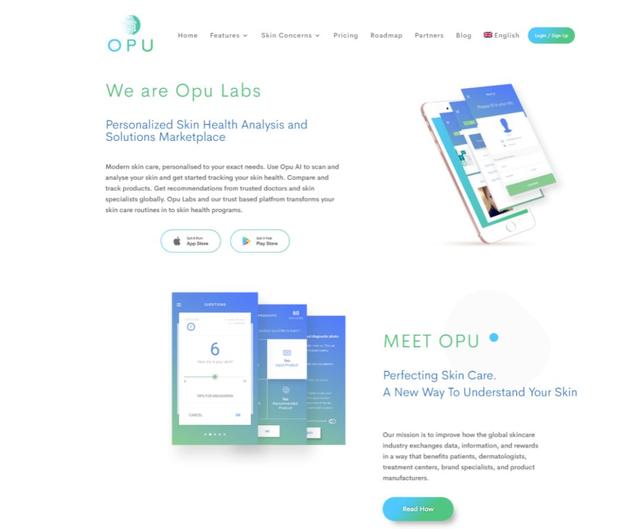
官网:http://www.opulabs.com/
Opu Labs正在从护肤领域打造未来的自我护理商业模式。他们拥有超过12亿的在线护肤消费者,数字服务业务价值30亿美元。Opu Labs提供基于AI技术的免费建议,并利用区块链技术奖励购买数据的用户,将先进技术用于连接品牌和消费者,帮助简化决策过程。
在首席执行官Marc Bookman的领导下,Opu Labs被CIO Applications评为全球前25大医疗解决方案,并在新加坡赢得了初创企业大满贯。截止目前,该平台已经获得200万美元的奖励,该公司将很快发布他们期待已久的应用程序。
![]()
Coinsbit.io

官网:https://coinsbit.io/
Nikolay Udianskyi凭借他丰富的专业能力、经验和市场意识,创建了一个名为Coinsbit.io的高质量加密货币交易平台。如今Coinsbit.io主导着亚洲加密货币市场,被评为2019年亚洲区块链领域2018年最佳加密货币平台。
Coinsbit正计划通过一系列新颖的功能进一步从竞争中脱颖而出。该公司的计划之一是推出P2P小额贷款服务,允许用户在平台上借贷。Coinsbit将确保所有用户的隐私,并且不会要求借款人出示他们的信用记录。另外一个计划中的功能是一个投资箱服务,它将通过支付各种硬币的利息来奖励那些存储加密货币的用户。
![]()
GST Coin

官网:http://www.gstcoin.io/
GST是一个综合的数字应用平台,集成了加密支付货币、区块链和人工智能技术,致力于为每个用户提供最有价值的智能数字资产服务,并在多元化的市场结构中创建新的GST数字公共链。GST项目致力于使用最先进的技术创造最完美的用户体验,并以去中心化的安全共享架构中始终处于市场最前沿。
GST诞生于MHC资产管理公司,这是一家从事区块链技术研发与创新的高科技企业。他们的执行团队包括首席执行官张群女士和中国其他领先的技术人员和企业家。
![]()
Columbu

官网:http://www.columbu.network/en/
Columbu(CAT)是一个基于社区的全球开源区块链项目,自2017年开始运作。在CTO David Su的领导下,CAT的主要重点是基于软件和硬件结合GCloud Everest计算平台,建立一个高性能DAPP开发平台和社区激励及自治系统,这是全球第一个使用CUDA和区块链技术的公共区块链(分布式云)。
该项目将允许智能经济的全球分布式和自由经济协作网络。这将通过社区激励机制和自主系统实时建立。该项目有一个雄心勃勃的路线图,其中包括在其生态系统中发展其全球开发者社区和其他项目。
![]()
KBC

官网:https://karatgold-kbc.com/
KBC注册于新加坡,是全球金融基础设施和一系列以黄金为核心产品的有力象征。这些产品包括一款名为IMpulse K1的创新语音区块链智能手机、一款名为K-Merchant的加密支付商户处理器,以及一个加密货币交换和交易平台。这些产品和实体结合在一起形成了黄金帝国,即公司的金融生态系统。
该公司吸引了大量用户的兴趣,他们看到了拥有黄金和加密货币的好处,以及通过KBC等令牌每天都能轻松使用的便捷性。随着这两个市场的扩张,可以密切关注KBC。
![]()
TEXCENT

官网:https://texcent.com/
TEXCENT是一家新加坡区块链和金融科技创业公司,致力于全面整合汇款、支付和小额融资解决方案。TEXCENT希望利用区块链技术为亚洲乃至全世界提供无缝的、便捷的数字金融服务解决方案。TEXCENT目前专注于菲律宾、越南、泰国等国家,因为这些市场将在未来5年内实现成倍的增长。
他们目前的产品包括PAYCENT——一款应用和混合钱包,以及TEXCENT,一款零费用的汇款解决方案。TEXCENT已经从新加坡金融管理局(MAS)获得了汇款许可证,未来几个月还将在英国、马来西亚和香港获得类似的许可证。该公司也是新加坡金融技术协会的成员之一。
![]()
【相关阅读】
这些初创公司展示了区块链在各个行业中的潜力
分散式网络解决了许多行业的问题。因此,根据ABI Research的显示数据,区块链公司未来几年的营收将达到100亿美元也就不足为奇了。
分布式账本技术(DLT)指分散的、无信任的系统,根据加密货币专家Nick Szabo在《货币、区块链和社交扩展性》一书中所说:
“社会可扩展性方面的创新包括制度和技术上的改进,将一项功能从思想转移到纸上或思想转移到机器上,降低认知成本,同时增加思想之间流动的信息的价值,减少脆弱性,以及/或寻找和发现新的互利参与者。”
根据国际数据公司(International Data Corp.)的数据,2018年至2023年,区块链技术的5年复合年增长率(CAGR)将达到76%。
价值转移
区块链可以是一种安全的价值转移媒介(就像比特币网络),其中节点就公共分类账的状态达成一致。Altcoins是较小的加密项目,吸引较小的利基市场。例如,Free Coin项目鼓励没有银行账户的人使用密码,并从法定基金转为数字基金。他们的技术支持低费用的点对点支付。
就拿一个成熟的项目全球数字资产(GDA)举例来说,他们是一家专注于区块链的商业银行服务公司,通过风险投资,公共市场或贷款帮助区块链企业筹集资金或获得流动性。该公司还帮助企业构建公共设施和安全代币产品(STO)。
数据保护
DLT在加密货币之外也有应用,从安全投票到供应链跟踪。据世界经济论坛称,它大规模的应用将使全球GDP增长5%,贸易额增长15%。
区块链非常适合跟踪和保存数据,并且该功能可以与RFID标签等物理硬件相结合,以改善物流,运输和仓储操作。
另一个区块链应用是电子投票。由于担心人为干扰,技术专家认为区块链驱动的电子投票更加安全和私密,一个例子是ZCoin,它于2018年底运用于泰国的大规模政治选举。
还有一些网络可以更容易地遵守监管框架。
Maxonrow的首席执行官Mark Homeier表示:“KYC(了解客户)和AML(反洗钱)的含义不仅限于加密货币”,“区块链有一种独特的能力,可以让KYC和AML识别度更高,同时在一定程度上保护用户隐私,让用户控制自己的识别数据。”
Maxonrow是一个具有强制KYC验证的高吞吐量事务区块链。
DLT可以保护数据。Veridoc等项目旨在扰乱文件管理,其应用程序包括护照、土地所有权和教育证书的验证。该公司最近与DocuSign合作,为小企业带来创新。
Contentos使用区块链来转换视频的货币化和共享方式。该项目使用点对点模型来分配收入,并使用分散的方法来分配流量。该公司的技术认证版权,并安全地记录用户的信用评分,衡量平台上的贡献。
成为主流
区块链适用于社交媒体和零售。德勤(Deloitte)2018年的一项调查显示,41%的高管希望他们的组织在一年内实施区块链。
Dyson Network提供了一种企业解决方案,可加速所有分散系统的交易,从而实现实时支付并提升所有区块链性能。支付体验将变得快速、简单、友好,就像使用信用卡、PayPal、Square等支付方式一样。
BitWallet在休斯顿德克萨斯州运营,减少了访问加密的障碍。
BitWallet通过一款直观的投资组合应用,简化了加密货币的买卖和存储。由于全球监管状况分散,拥有多种加密货币的菲亚特网关很难获得。
商家采用是主流采用的关键。
Vexanium是下一代区块链,支持智能合约,分散式应用(dapps)和零售渗透。用户在付款时不需要支付交易费用。为了获得广泛的采用,开发人员构建的平台可以容纳每秒2000个交易(TPS)。
Reddcoin是一个加密和区块链项目,它验证ID并允许在社交媒体渠道上提供信息。因此,支持者将reddcoin视为一种社交商业工具。
DxChain迎合了支持隐私和数据安全的企业和消费者。分散的大数据网络可保护敏感信息,并为用户提供控制其数据的能力。DxChain的数据存储也可以保护隐私。
区块链是一项创新技术,其功能包括无摩擦交易,防篡改记录保存和数据隐私。企业可以利用其功能来改进其业务实践。
![]()
10 Blockchain Companies To Watch In Asia
In 2018, Asia was one of the leading regions in terms of growth of blockchain jobs, cryptocurrency usage, innovation, and general openness. Despite some early woes with China banning ICOs, China still produces nearly 70% of crypto mining activity.
For users and entrepreneurs, the Asian ecosystem is in general a friendly one. For example, in Singapore Bitcoin is taxed as a good rather than a currency, setting a 7% flat tax for trades or purchases using Bitcoin. In Japan, messenger giant, LINE, was just granted a crypto exchange license from the Japanese financial regulator. In Korea, news just broke that the country’s largest entertainment company would be launching its own token.
Besides the name brand companies that are exploring crypto solutions, there are hundreds of innovative startups and founders looking to radically disrupt their respective industries with blockchain technology. This list contains ten innovative blockchain startups based in Asia worth watching, including exchanges, fintech startups, and more.
1. Level01
Level01 is the world’s first broker less derivatives exchange in collaboration with Thomson Reuters. Through using blockchain technology, the platform eliminates middlemen while providing a decentralized trading experience. Users can trade derivatives and options in forex, cryptocurrencies, commodities, stocks and indices, all from the Level01 platform and app.
Level01 does this by using Distributed Ledger Technology (DLT) for transparent and automated trade settlement on the blockchain, with their unique Artificial Intelligence (AI) analytics called Fairsense that provides fair value pricing dynamically to counterparties in a trade, based on current and retrospective market data from Thomson Reuters. The platform and app are currently undergoing stringent beta testing by 50 experienced traders.
2. Galaxy Pool
Galaxy Pool, also known as GPO, is a brand-new asset issuance style on blockchain that utilizes intelligent contracts for initial digital asset issuance. In general, GPO assets can be best described as mining machines used to explore various kinds of digital assets that can obtain value-added benefits of GPO through the repurchase and destruction of pond profits.
With this brand-new asset issuance style on blockchain, more humanistic investment opportunities with free withdrawal rights can be provided to investors.
3. Biki
Headquartered in Singapore, BiKi.com is a global cryptocurrency exchange ranked Top 20 on CoinMarketCap. BiKi.com provides a digital assets platform for trading more than 150 cryptocurrencies and 220 trading pairs. Since its official opening in August 2018, BiKi.com is considered one of the fastest-growing cryptocurrency exchanges in the world with an accumulated 1.5 million registered users, 130,000 daily active users, over 2000 community partners and 200,000 community members in under a year.
BiKi’s competitive advantages include helping projects with marketing, influencers, brand awareness, and community growth in the Chinese markets and abroad. With a global approach, BiKi also helps Chinese companies go global and international companies penetrate Chinese markets.
4. Whitebit
With a global team of over 100 people, Whitebit is a professional digital asset trading platform that services most major Asian markets via a European license. The exchange holds 95% of user funds in cold wallets and offers users an intuitive user interface with real-time orderbooks, charting and technical analysis tools, and automation features. Whitebit’s major competitive advantage is processing speeds of up to 10,000 trades every second and 1,000,000 TCP connections.
Whitebit has also announced the release of S.M.A.R.T. Box, a program that allows users to budget and allocate funds based on unique plans with varying durations and interest rates. Next is the launch of margin trading in Q4 2020, as well as mobile iOS and Android apps and an eventual US license.
5. Opu Labs
Opu Labs is creating the self-care business model of the future starting with the skincare space. There are over 1.2 billion online skincare consumers with a $3 billion digital services business. Opu Labs helps make the decision-making process easier by offering free advice powered by AI, rewarding users for their purchase data using blockchain technology, and using robust technologies to connect brands and consumers.
Under the leadership of CEO Marc Bookman, Opu Labs was named in the top 25 healthcare solutions by CIO Applications and won the start-up GrandSlam in Singapore. To date, $2m in rewards have been earned on the platform and the company will be releasing their long-awaited apps soon.
6. Coinsbit.io
Thanks to his vast expertise, experience, and sense of the market, Nikolay Udianskyi created a high-quality crypto exchange called Coinsbit.io. Now leading the Asian crypto market, Coinsbit was named the best 2018 crypto exchange at Asian Blockchain Life 2019.
Coinsbit is planning to further distinguish itself from the competition through a series of novel functions. Among its plans is a P2P microfinancing lending service that will enable users to borrow and lend money on the platform. Coinsbit will ensure privacy for all users and will not require borrowers to show their credit history. An additional planned feature is an invest box service, which will reward users who deposit cryptocurrency by paying them interest on various coins.
7. GST Coin
GST is a comprehensive digital application platform which integrates encrypted payment currency, blockchain and artificial intelligence technology. It is dedicated to providing the most valuable intelligent digital asset service for every user and creating a new GST digital public chain in a diversified market structure. GST project is committed to using the most advanced technology to create the most perfect user experience, and it has always been in the forefront of the market in the decentralized security sharing architecture.
GST was born out of MHC Asset Management Corporation, a high-tech enterprise engaged in R&D and innovation of blockchain technology. Their executive team includes CEO Ms. Zhang Qun and other leading technologists and entrepreneurs in China.
8. Columbu
Columbu (CAT) is a global community-based open-source blockchain project that has been active since 2017. Under CTO David Su, CAT’s main focus is building a high-performance DAPP development platform and community encouraging and autonomous system based on software and hardware combined GCloud Everest computing platform. This is the world's first public blockchain (distributed cloud) using CUDA and blockchain technology.
The project will allow for a worldwide distributed and free economic collaborative network of intelligent economies. This will happen through a community incentive mechanism and autonomous system to build in real-time. The project has an ambitious roadmap that will include growing its global developer community and other projects within their ecosystem.
9. KBC
Registered in Singapore, KBC is the powering token of a global financial infrastructure and range of products focused around gold. These products include an innovative Voice-over-Blockchain smartphone called IMpulse K1, a crypto payment merchant processor called K-Merchant, and a cryptocurrency exchange and trading platform. Together these products and entities combine to form the Gold Imperium, the company’s financial ecosystem.
The company has attracted heavy interest from users who have seen the benefits of having both gold and cryptocurrency exposure, as well as the ease of use of being able to use each day to day through tokens such as KBC. As both markets expand, keep an eye on KBC.
10. TEXCENT
TEXCENT is a Singaporean blockchain and fintech startup focused on fully-integrated solutions for remittance, payments, and microfinancing. Using blockchain technology, the company wants to provide seamless and convenient digital financial services solutions to Asia and the world. TEXCENT is currently focusing on the Philippines, Vietnam, Thailand as these markets will grow exponentially in the next 5 years.
Their current products include PAYCENT, an app and hybrid wallet, as well as TEXCENT, a remittance solution with zero fees. TEXCENT has already acquired a remittance license from the Monetary Authority of Singapore (MAS) and is in the process of getting similar licenses for UK, Malaysia and Hong Kong in the coming months. The company is also a member of the Singapore Fintech Association.
【Related Reading】
These Startups Show Blockchain's Potential In Various Industries
Decentralized networks solve problems across many industries. Thus, it’s no surprise that blockchain companies will reach $10 billion in revenue in the next couple of years, according to ABI Research.
Distributed ledger technologies (DLT) refer to decentralized, trustless systems, and according to cryptocurrency guru Nick Szabo in “Money, Blockchains and Social Scalability”:
“Innovations in social scalability involve institutional and technological improvements that move a function from mind to paper or mind to machine, lowering cognitive costs while increasing the value of information flowing between minds, reducing vulnerability, and/or searching for and discovering new and mutually beneficial participants.”
The technology will see a 5-year compound annual growth rate (CAGR) of 76% between 2018-2023, according to International Data Corp.
Value Transfer
Blockchain can be a secure medium for value transfer (like the Bitcoin network), where nodes agree on the status of a public ledger. Altcoins, which are smaller crypto projects, appeal to smaller niches. For example, the Free Coin project encourages unbanked people to use crypto, and to switch from fiat to digital funds. Their tech enables peer-to-peer payments that feature low fees.
A sophisticated project is Global Digital Assets (GDA), a blockchain-focused merchant banking services firm. It helps blockchain ventures to raise funds or gain liquidity through venture capital, public markets, or loans. The firm also helps companies to structure utility and security token offerings (STOs).
Securing Data
DLT has applications outside of cryptocurrencies, from secure voting to supply chain tracking. According to World Economic Forum, wide-scale adoption will lead to 5% increase in global GDP and 15% increase in trade volume.
Blockchains are excellent at tracking and preserving data, and the capability can be combined with physical hardware like RFID tags to improve logistics, shipping, and warehousing operations.
Another application is e-voting. Due to concerns with interference, technologists view blockchain-powered e-voting as more secure and private. An example is ZCoin, which launched a large-scale political election in Thailand in late 2018.
There are also networks that make it easier to comply with regulatory frameworks.
“The implications of KYC (know your customer) and AML (anti-money laundering) extend beyond cryptocurrencies,” says Mark Homeier, CEO of Maxonrow. “Blockchains have a unique capability to make KYC and AML identification better while preserving user privacy to a specific extent, and concurrently handing users control over their own identification data.”
Maxonrow is a high-throughput transaction blockchain with mandatory KYC verification.
DLT can protect data. Projects like Veridoc aim to disrupt document management, and applications include the verification of passports, land titles, and education certificates. The company recently partnered with DocuSign to bring the innovation to small businesses.
Contentos uses blockchain to transform how videos are monetized and shared. The project uses a peer-to-peer model for distributing revenue, and uses a decentralized approach for distributing traffic. The firm’s tech authenticates copyrights, as well as securely records users’ credit score, which measures contributions on the platform.
Going Mainstream
Blockchain is applicable in social media and retail. Forty-one percent (41%) of executives expect their organization to implement blockchain within a year, according to a 2018 survey by Deloitte.
Dyson Network provides an enterprise solution to accelerate transactions for all decentralized systems which would enable real-time payment and promote all blockchain performance. Payment experience will become fast, easy and friendly just like using a credit card, PayPal, Square and other payment methods.
BitWallet, which operates out of Houston Texas, reduces the barrier to accessing crypto.
BitWallet simplifies the buying, selling, and storing of cryptocurrencies with an intuitive portfolio app. Fiat gateways with multiple cryptocurrencies are hard to come by with fragmented regulatory statuses around the world.
Merchant adoption is crucial for mainstream adoption.
Vexanium is a next-gen blockchain that supports smart contracts, decentralized applications (dapps), and retail penetration. Users don’t incur a transaction fee when making payments. To gain mass adoption, developers built the platform to accommodate 2,000 transactions per second (TPS).
Reddcoin, a crypto and blockchain project, verifies IDs and enables tipping on social media channels. Supporters, therefore, look at Reddcoin as a social commerce tool.
DxChain caters to enterprises and consumers who favor privacy and data security. The decentralized big-data network protects sensitive info, and gives users the power to control their data. DxChain’s data storage also protects privacy.
Blockchain is an innovation whose functions include frictionless transactions, tamper-proof recordkeeping, and data privacy. Organizations can tap into its capabilities to improve their business practices.
- END -
关注我们
区块链,人工智能,
行业相关资讯 ,干货,
报告等,可搜索
数据观微信公众号
进入查看。
数据观
公众号:cbdioreview
官网:www.cbdio.com
微博:数据观官微



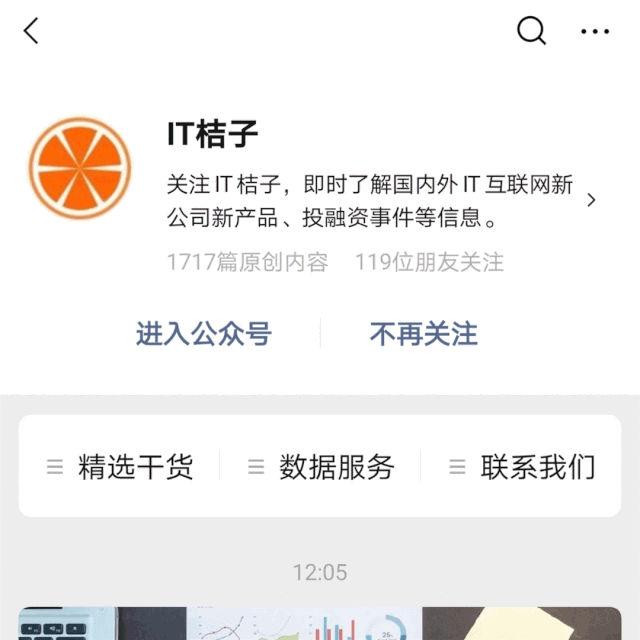



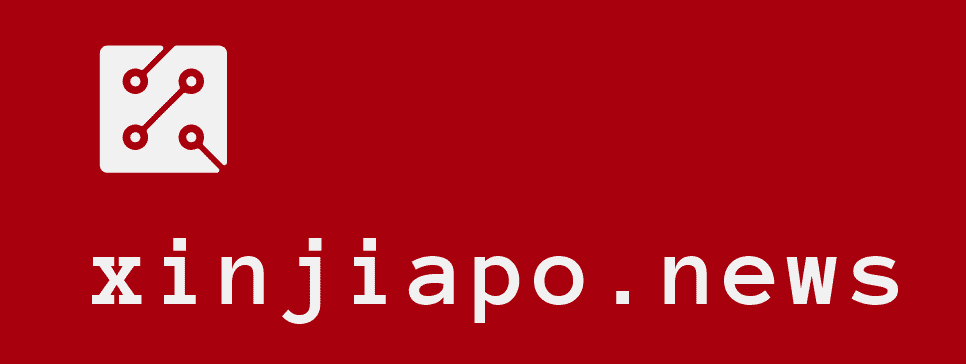













评论